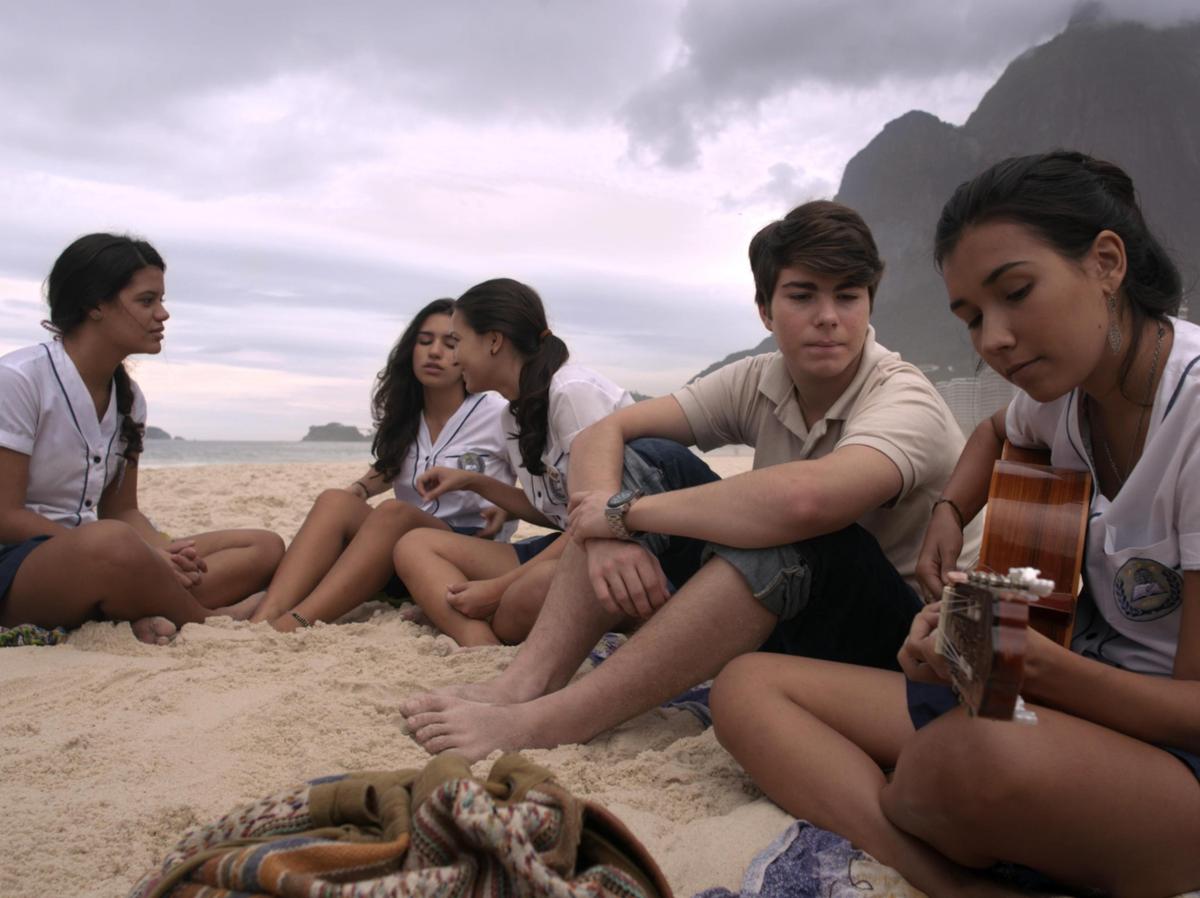Fellipe Barbosa’s semi-autobiographical feature debut Casa Grande (Big House) centres on a wealthy family’s struggle to sustain their social status and lifestyle in one of Rio de Janeiro’s elite southern neighbourhoods.
The last few years have seen Brazilian filmmaking enter a new era. Previously the international cinema scene was exposed to the fast-paced tension of violence, drugs, poverty and corruption, usually in the midst of urban poverty. In contrast, Casa Grande follows a slow, subtle rhythm of observational vignettes of daily life, centred on 17 year-old Jean, navigating his last year in secondary school as his family’s apparently secure and affluent existence begins to crumble. Jean’s father Hugo, a financial advisor, is bankrupt, but pride dominates and he tries to keep it secret from his family.
Beautifully shot, the film showcases Rio’s natural tropical lushness which complements the family’s sophisticated residence. There is a mellowness to the mood that is increasingly tinged with tension. The story advances through interpersonal interactions often peppered with an affectionate sense of humour.
Barbosa’s autobiographical focus lends an authenticity to the narrative. The film is shot in his own family’s house and at the secondary school he attended. The school boy actors are even actual students from the school, including Thales Cavalcanti who gives an outstanding performance as the main protagonist, the soft-faced Jean. The other notable performance is by Marcello Novaes as Jean’s father Hugo as he stumbles along with his unwavering pride trying not to fall apart.
Opening on a twilight scene in the luscious gardens of a grand house, Hugo casually exits his outdoor jacuzzi. The scene lingers as he goes inside to shut down the house for the night, and, as each light is switched off, you get the sense of how big a house it is. The next morning, daily existence begins: the household staff arrive, they catch up with social life over breakfast. However, soon the cracks begin to appear and Hugo’s financial situation starts to have consequences for all members of the household.
The film’s title is a direct reference to a Brazilian novel Casa Grande e Senzala (The Big House and Slave Quarters) (1933) that supported the idea of combining the races and classes for a more prosperous future Brazil. It’s an ideal that the film supports and tries to update through its discussions about a rising middle class, better workers’ rights and affirmative action programs in education. Barbosa wants the audience to feel hope for a better future by depicting a younger generation whose lives are being liberated from the barriers that the upper-class dream created for both sides of the class divide.
While much of the film is played out in a subtle unraveling, some scenes don’t always work. In interview, Barbosa says the denouement scene effectively demonstrates a new world of opportunity for the working class. But in reality the scene seems to bring a sad, conflicted moment and another blow to the crumbling household.
Overall, however, the film succeeds in its aims: it is an affectionate yet critical portrait of contemporary Brazilian upper-class society. Fellipe Barbosa is a refreshing addition to Brazilian filmmaking and its future.
Rating: 4 out of 5 stars
Casa Grande
Director: Felipe Barbosa
USA, 2014, 115 min
Melbourne International Film Festival
www.miff.com.au
31 July – 17 August
Actors:
Director:
Format:
Country:
Release:





